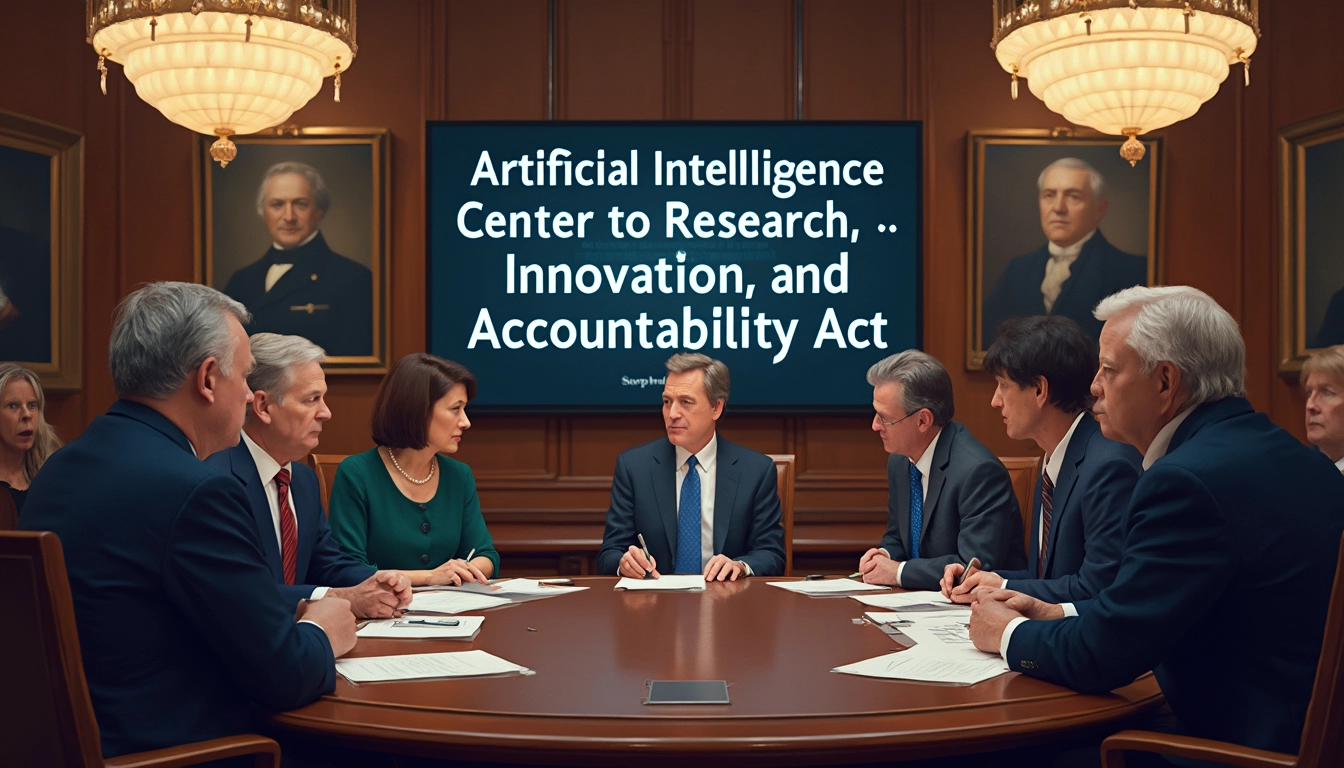
Comprehensive AI Regulation Framework: AIRIA Bill Unveiled for Transparency and Accountability
In a pivotal move towards regulating artificial intelligence, US senators have introduced the Artificial Intelligence Research, Innovation, and Accountability Act (AIRIA). This bipartisan effort aims to establish a comprehensive framework for AI transparency and accountability, particularly focusing on high-risk AI systems.
Key Takeaways:
- AIRIA introduced on November 15, 2023, by a bipartisan group of senators
- Bill aims to create enforceable standards for high-risk AI systems
- Mandates transparency reports and risk assessments for AI deployers
- Empowers NIST to issue sector-specific recommendations for AI regulation
- Complements other AI-related legislation addressing content integrity and civil rights
Table of Contents
Establishing a Framework for AI Innovation and Regulation
The AIRIA bill represents a significant step towards AI regulation in the United States. It aims to amend existing federal law to better account for AI technologies and directs federal agencies to conduct AI-related research. One of the key aspects of this legislation is the modification of the Open Government Data Act to include ‘data models’ in the definition of ‘public data asset’.
By defining ‘artificial intelligence system’ in federal law, the bill sets the stage for creating enforceable testing and evaluation standards for high-risk AI systems. This move is crucial for ensuring AI accountability and transparency in various sectors.
Transparency and Accountability Measures
One of the cornerstones of AIRIA is its focus on transparency and accountability for high-risk AI systems. The bill mandates transparency reports from companies using such systems, requiring them to disclose important information about their AI applications.

Additionally, deployers of high-impact (HIAIS) and critical-impact (CIAIS) AI systems will be required to conduct risk assessments and certifications. This measure aims to ensure that AI systems are thoroughly evaluated before deployment, minimizing potential risks and enhancing AI security.
Enforcement and Penalties
The Department of Commerce has been tasked with enforcing the requirements set forth in the AIRIA bill. To ensure compliance, the legislation introduces civil penalties of up to $300,000 or twice the value of the violating transaction for non-compliance. This enforcement mechanism underscores the seriousness with which the government is approaching AI regulation and accountability.
Complementary Legislation
AIRIA is part of a broader legislative effort to address various aspects of AI governance. Two other notable pieces of legislation complement its objectives:
- The Content Origin Protection and Integrity from Edited and Deepfaked Media Act (COPIED ACT) focuses on content provenance and synthetic content detection.
- The Artificial Intelligence Civil Rights Act aims to eliminate AI bias and ensure civil rights protections in AI applications.
These complementary bills address crucial aspects of AI regulation, including content integrity and civil rights protection, forming a comprehensive approach to AI governance.
Implications for the Private Sector
The introduction of AIRIA and its companion legislation will likely have significant implications for the private sector. Companies developing or deploying AI systems will need to adapt their practices to comply with new transparency and accountability requirements.
While these regulations may pose challenges, they also present opportunities for businesses to demonstrate their commitment to responsible AI use. By embracing these standards, companies can build trust with consumers and stakeholders, potentially gaining a competitive edge in the rapidly evolving AI landscape.
The Future of AI Governance
As AI continues to permeate various aspects of our lives, the need for robust governance frameworks becomes increasingly apparent. The AIRIA bill represents a significant step towards balancing AI innovation with responsible use.
However, implementing and enforcing these regulations across diverse AI applications will be a complex task. It will require ongoing collaboration between policymakers, industry leaders, and AI experts to ensure that the regulatory framework remains effective and adaptable in the face of rapid technological advancements.
In conclusion, the introduction of the AIRIA bill marks a pivotal moment in the journey towards comprehensive AI regulation in the United States. By focusing on transparency, accountability, and innovation, this legislation aims to create a framework that fosters responsible AI development while safeguarding against potential risks. As the bill progresses through the legislative process, it will be crucial for all stakeholders to engage in the conversation and contribute to shaping the future of AI governance.
Sources:
Artificial Intelligence Research, Innovation, and Accountability Act (AIRIA)
Content Origin Protection and Integrity from Edited and Deepfaked Media Act (COPIED ACT)
Artificial Intelligence Civil Rights Act



3 thoughts on “Comprehensive AI Regulation Framework: AIRIA Bill Unveiled for Transparency and Accountability”